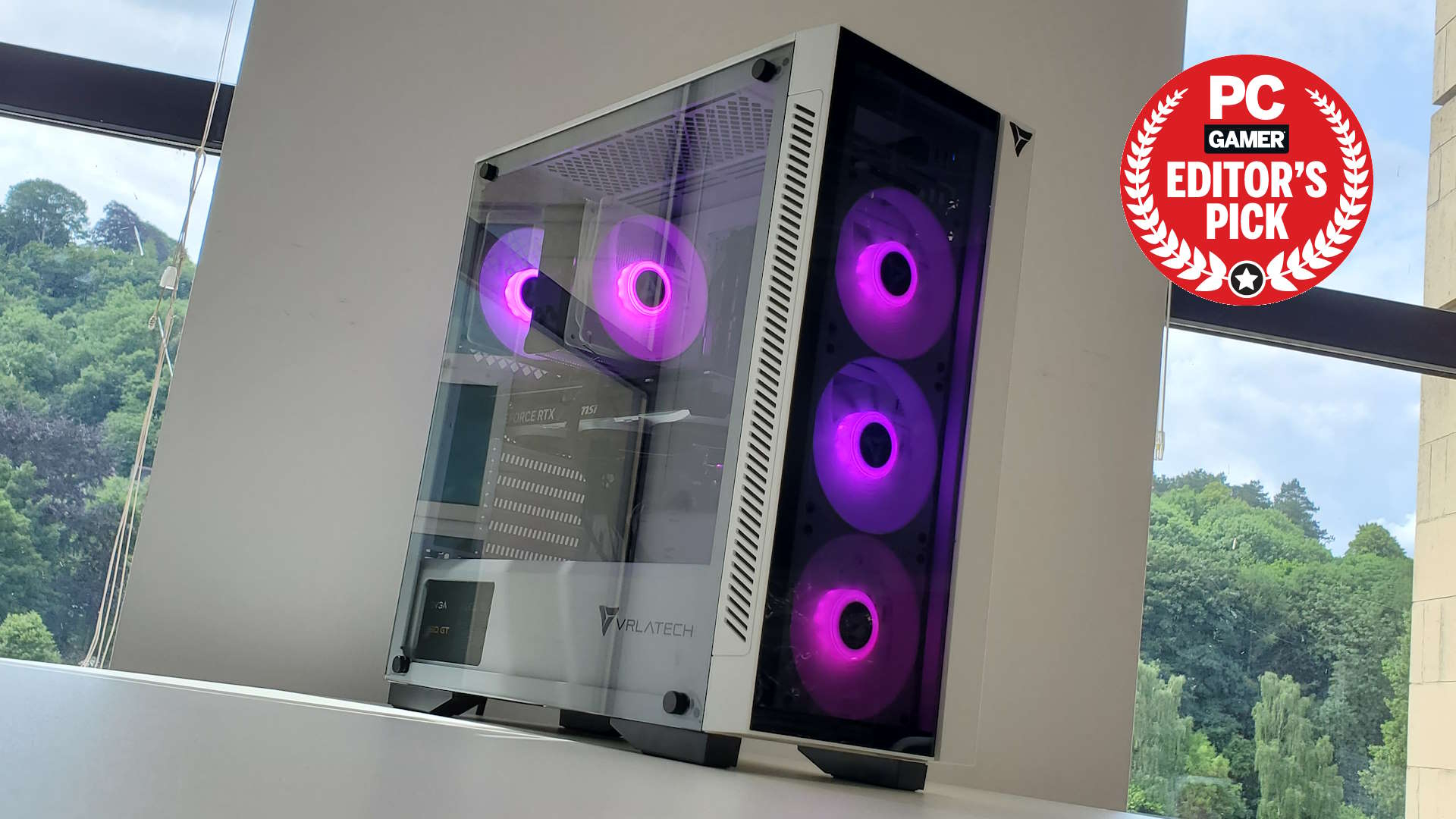Our Verdict
VRLA Tech has gone all out on a mid-tier, current gen-beastie. The Titan hits the spot for gaming and rendering for a really reasonable price, and there's hardly a caveat in sight.
For
- Stellar CPU and GPU gaming perf
- Rendering ain't too bad either
- Pretty white case
- Reasonable price…
Against
- …But still a fair chunk of money
- SSD speeds are a little lacking
PC Gamer's got your back
I think VRLA Tech knows I'm a sucker for white gaming gear, because the Titan I've been sent (actual name, not a descriptor) is an icy white powerhouse of a prebuilt gaming PC. Aside from the purest of colourways, there's a lot else to like about the Titan, both on paper and when it comes to real-world performance.
Though, as is to be expected from an RTX 4070-powered gaming PC right now, there's at least one little area that could do with some love—the SSD in particular. Still, I really wouldn't be disappointed if I had to use this thing on the daily.
We pitted this model against a couple of other RTX 4070 gaming machines including the $200 cheaper Skytech Chronos 2, and the Legion Tower 5i which sits usually at $164 more expensive (though is on offer at the time of writing down to $1,700). Each is a different class of machine, with the Legion acing pretty much anything thrown its way—including the kind of rendering and video encoding needed for a life of media creation—while the Skytech sacrifices load times and rendering performance to keep it on the level when it comes to gaming for less.
The VRLA Tech Titan sits slap bang in the middle, performance wise, and is the very epitome of a current-gen machine in the technological Goldilocks zone.
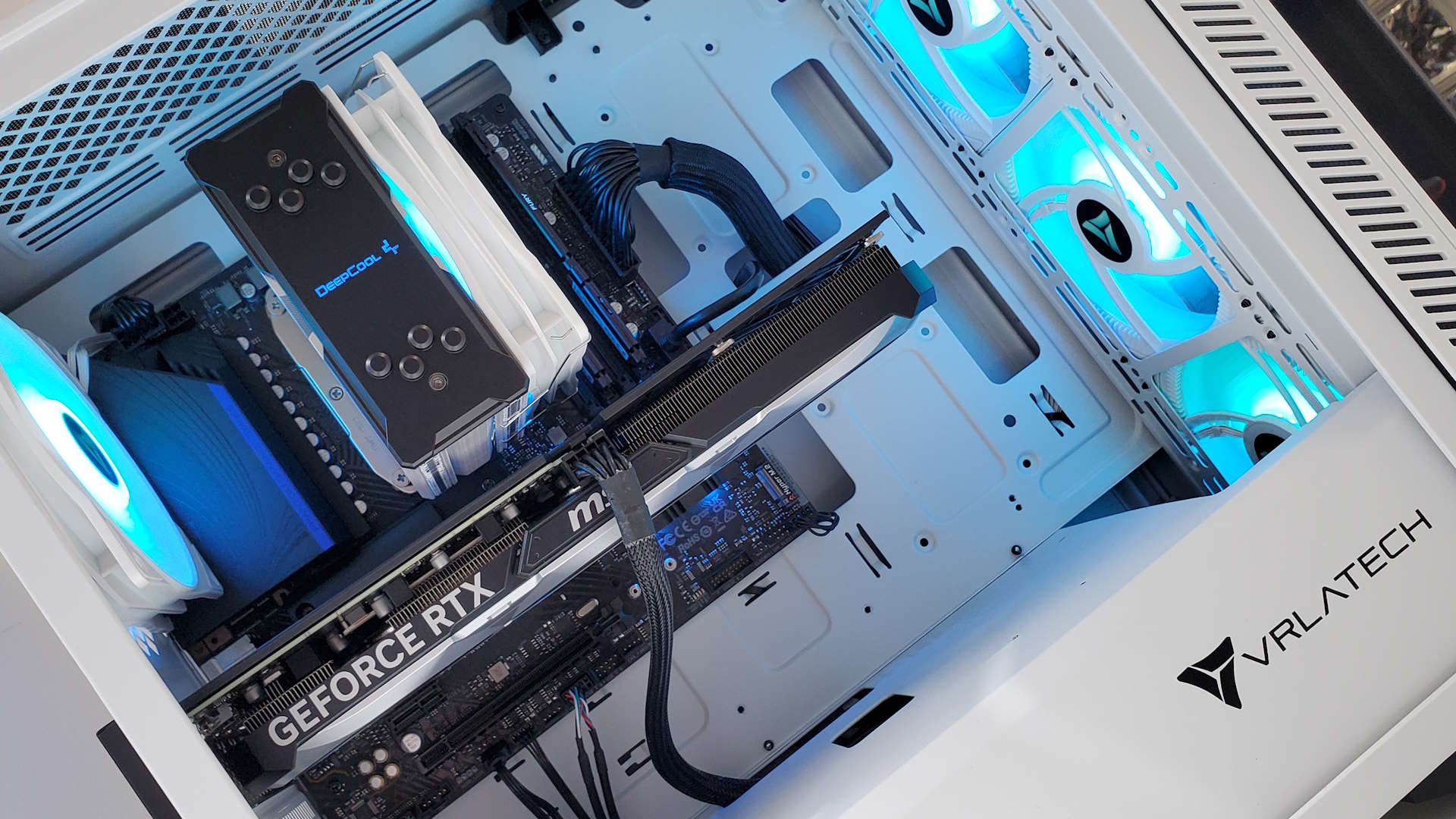
Case: Deepcool Matrexx 55 V3 Tempered Glass Case - White
CPU: AMD Ryzen 5 7600
GPU: MSI GeForce RTX 4070
Cooling: Deepcool Gammaxx RGB Tower cooler & 4 x High Performance RGB fans
Motherboard: B650
RAM: 16GB (2 x 8GB) DDR5-5200
Storage: PCIe 4.0 Gen 4x4 Kingston SNV2S 1000G 1TB NVMe
Power Supply: EVGA 650W 80+ Power Supply
Operating System: Windows 11
Price: $1,686
The only difference between the RTX 4070 Titan model we were sent and the base config on the VRLA site is the four "high-performance" RGB fans for another $70. Altogether that puts the price of this exact config up from $1,625 to $1,686.
The fact the otherwise identical RTX 3070 model is still just $75 less speaks to the weird inter-GPU-series transitional period we're in currently. You'll find a lot of 40-series gaming PCs are a little inflated right now, essentially for the privilege of nabbing the first round of Nvidia's Ada GPUs. But as we note in our RTX 4070 review, it's essentially "an RTX 3080 with benefits." Meaning you'd be a fool not to pay the additional cash over the RTX 3070 model.
Gaming performance
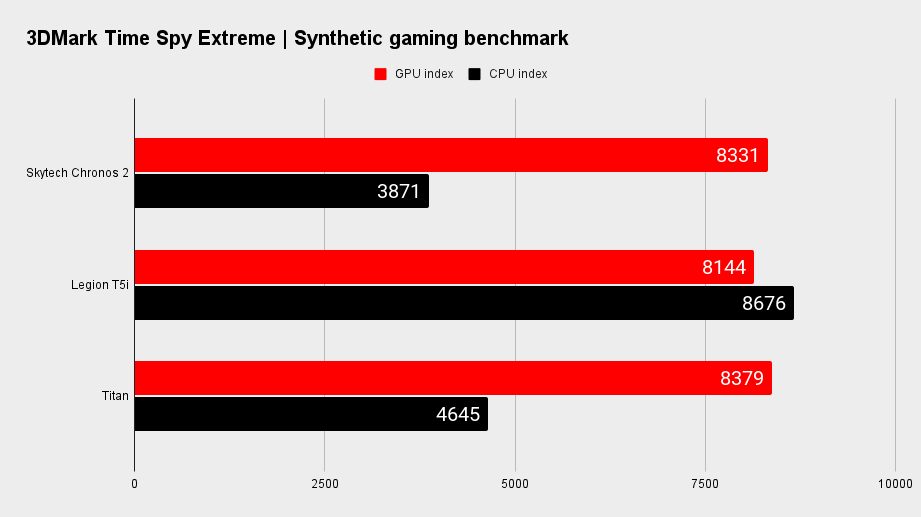
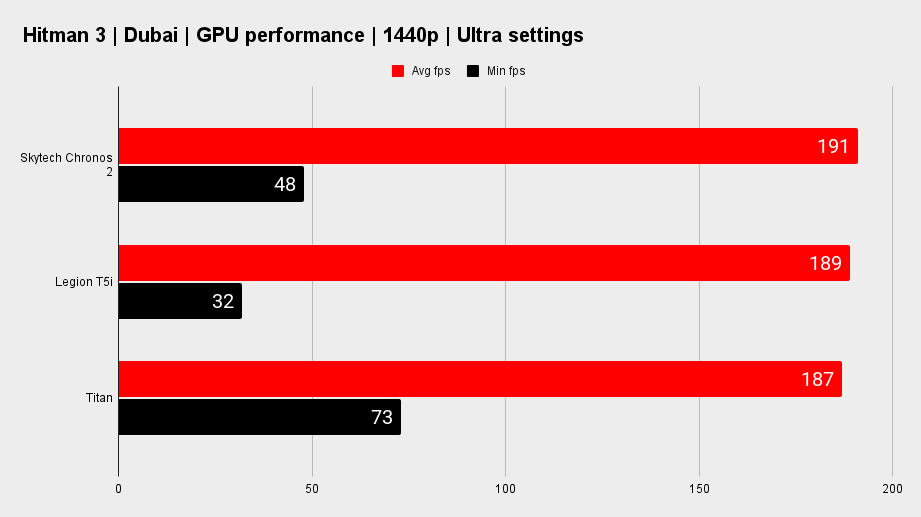
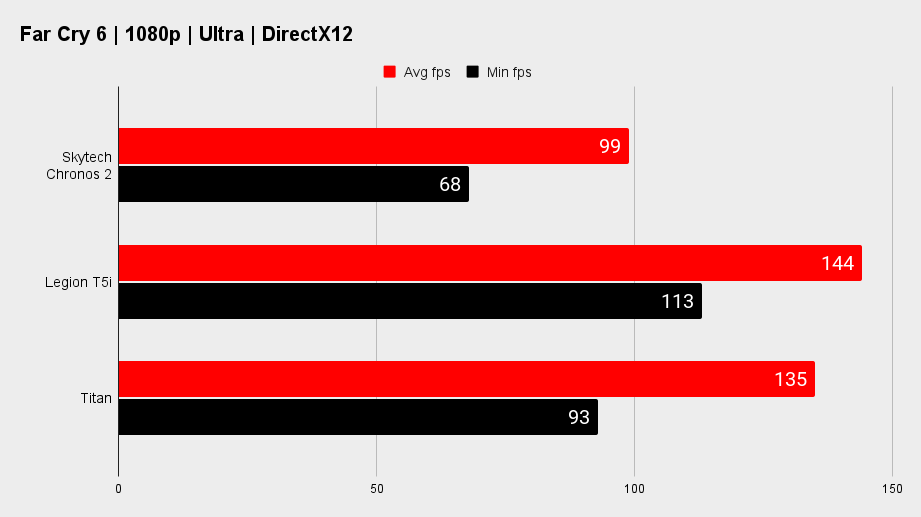
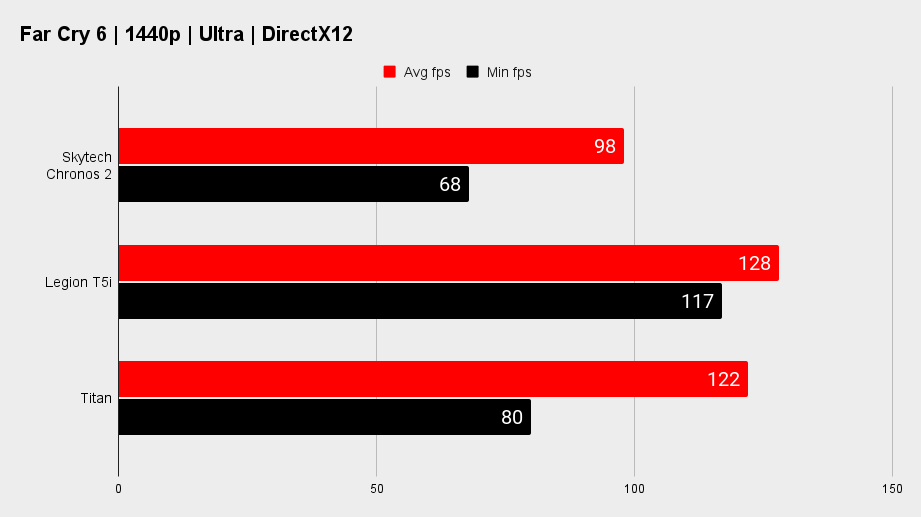
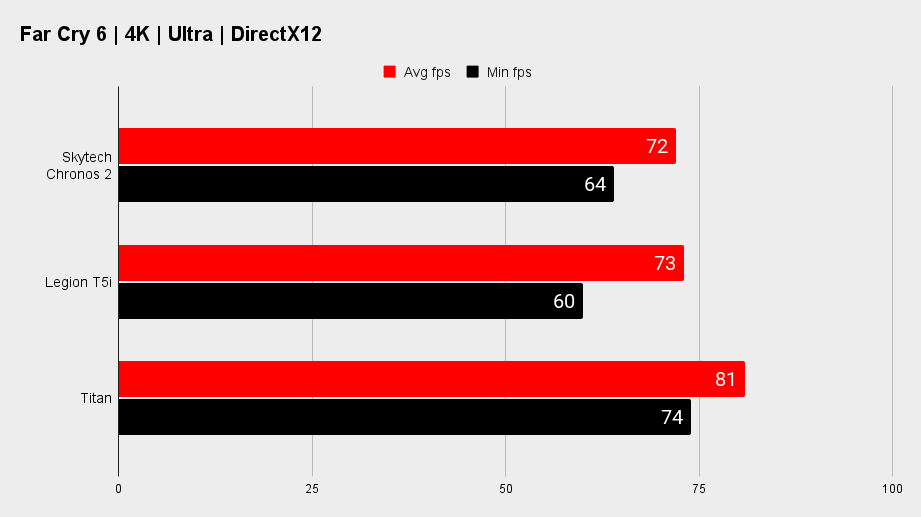
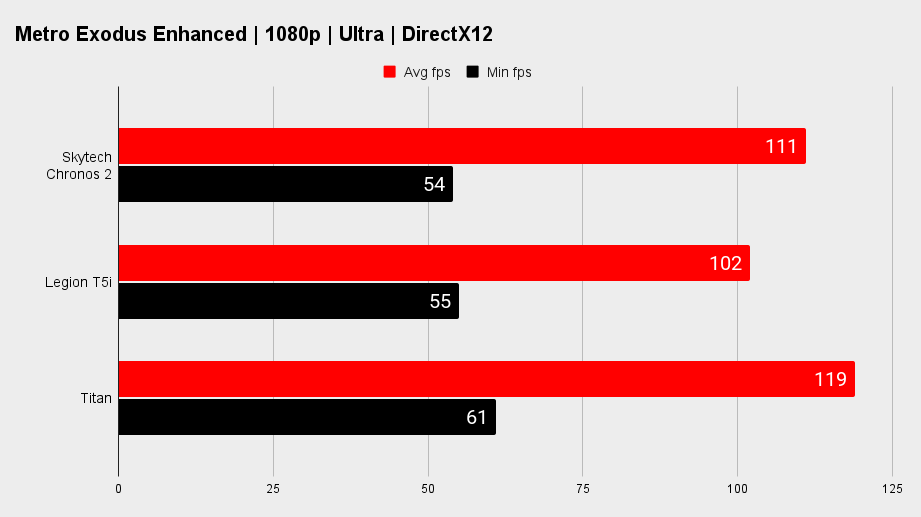
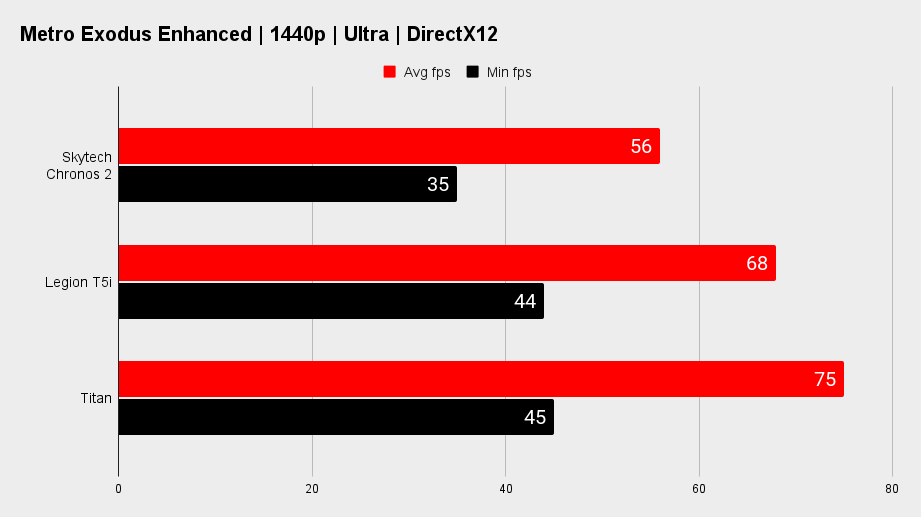
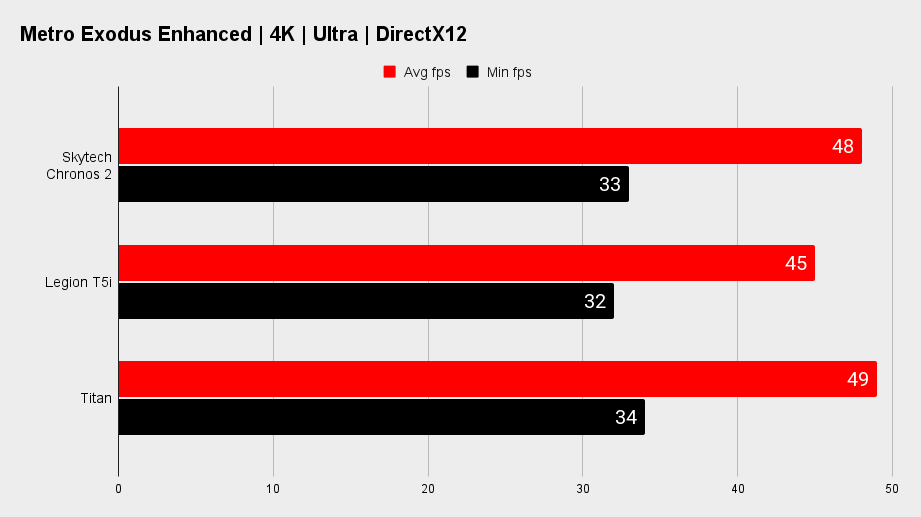
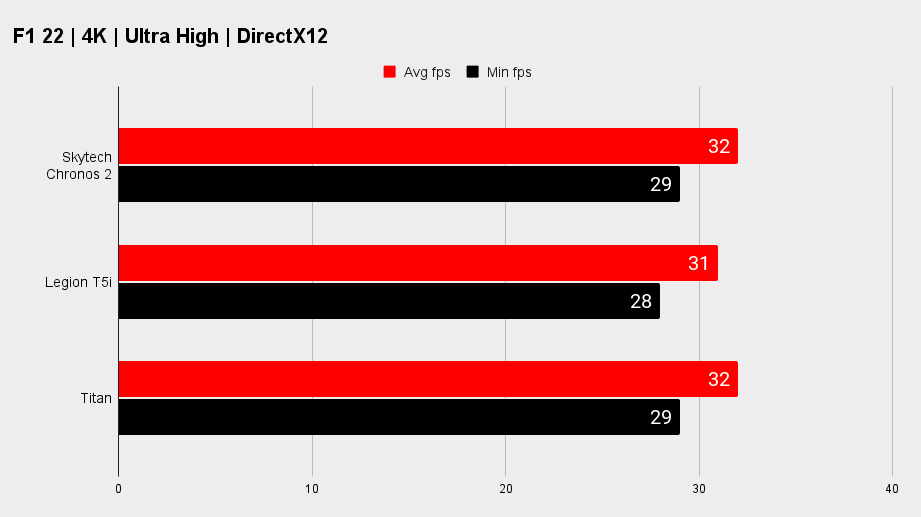
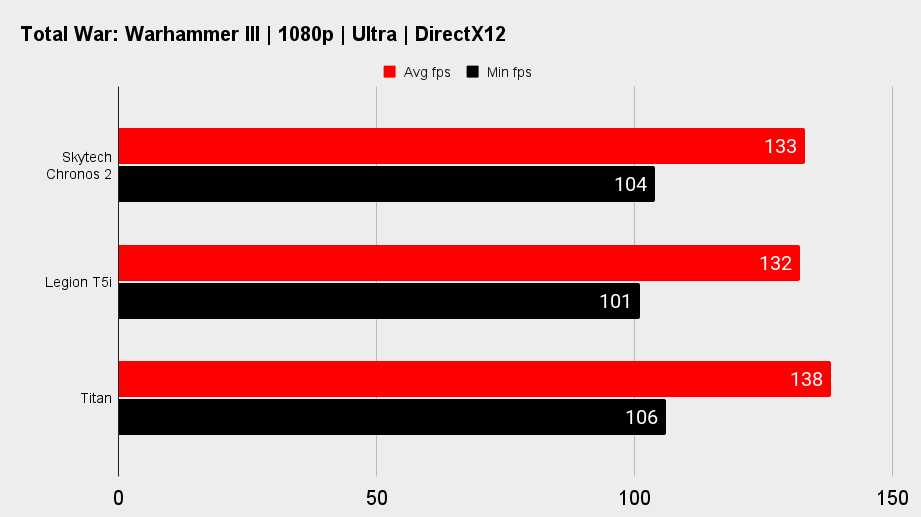
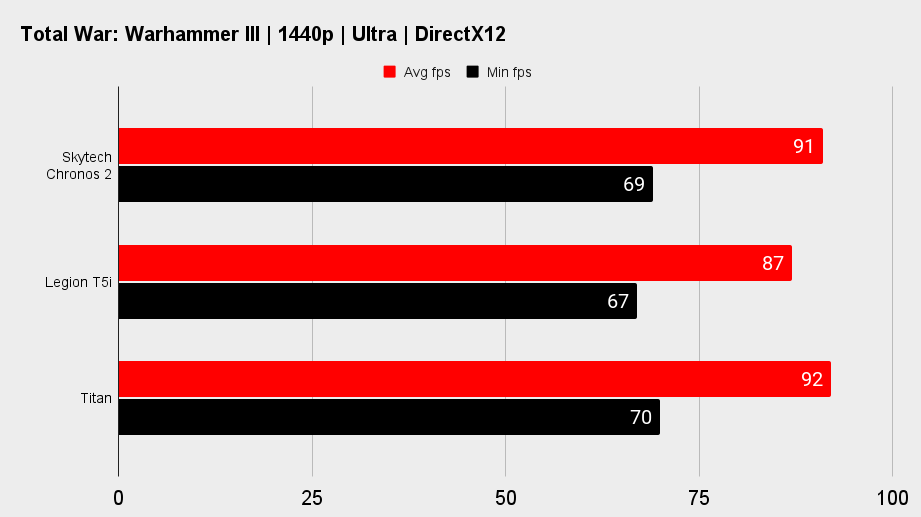
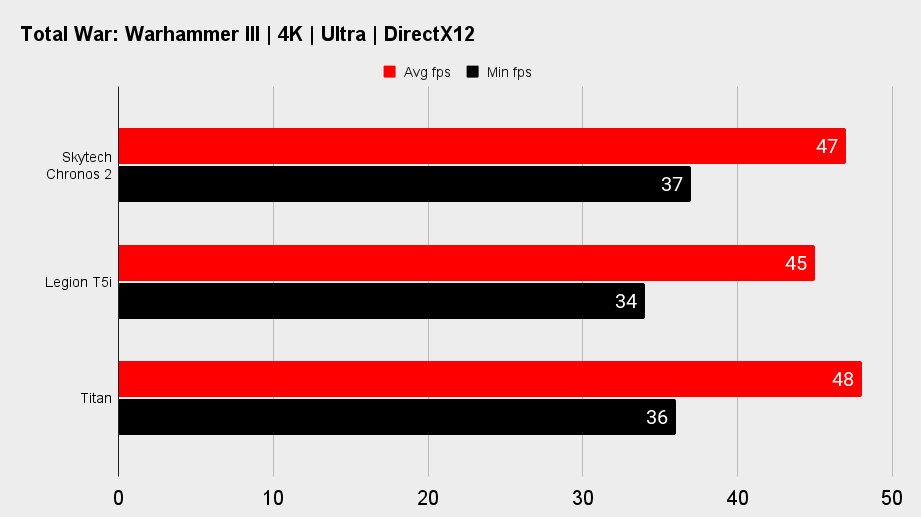
I'm actually quite thankful for that extra fan, because while Ada is a supremely efficient GPU architecture, with the GPU only topping out at 71°C, that six-core, 12-thread AMD Ryzen 5 7600 CPU pushes 85°C during a full day of testing, too.
The odd bit of gaming shouldn't be too much of a concern temperature wise, but if you plan on using it for game creation and all-day rendering (as you definitely could, looking at the CPU rendering benches) any extra cooling is going to be a blessing. The CPU cooler does have Dual-fan support if you want to double up on it, too.
As for the CPU itself, while it's not the beefiest current-gen option it's still shaping up to be a stellar gaming chip. I watched it absolutely rip through the Dartmoor benchmark in Hitman 3, with 166 fps CPU averages at 1440p Ultra. That's even better than the Core i7 13th Gen machine in our benchmarking line up, and it means VRLA Tech is onto a stellar core component combo here.
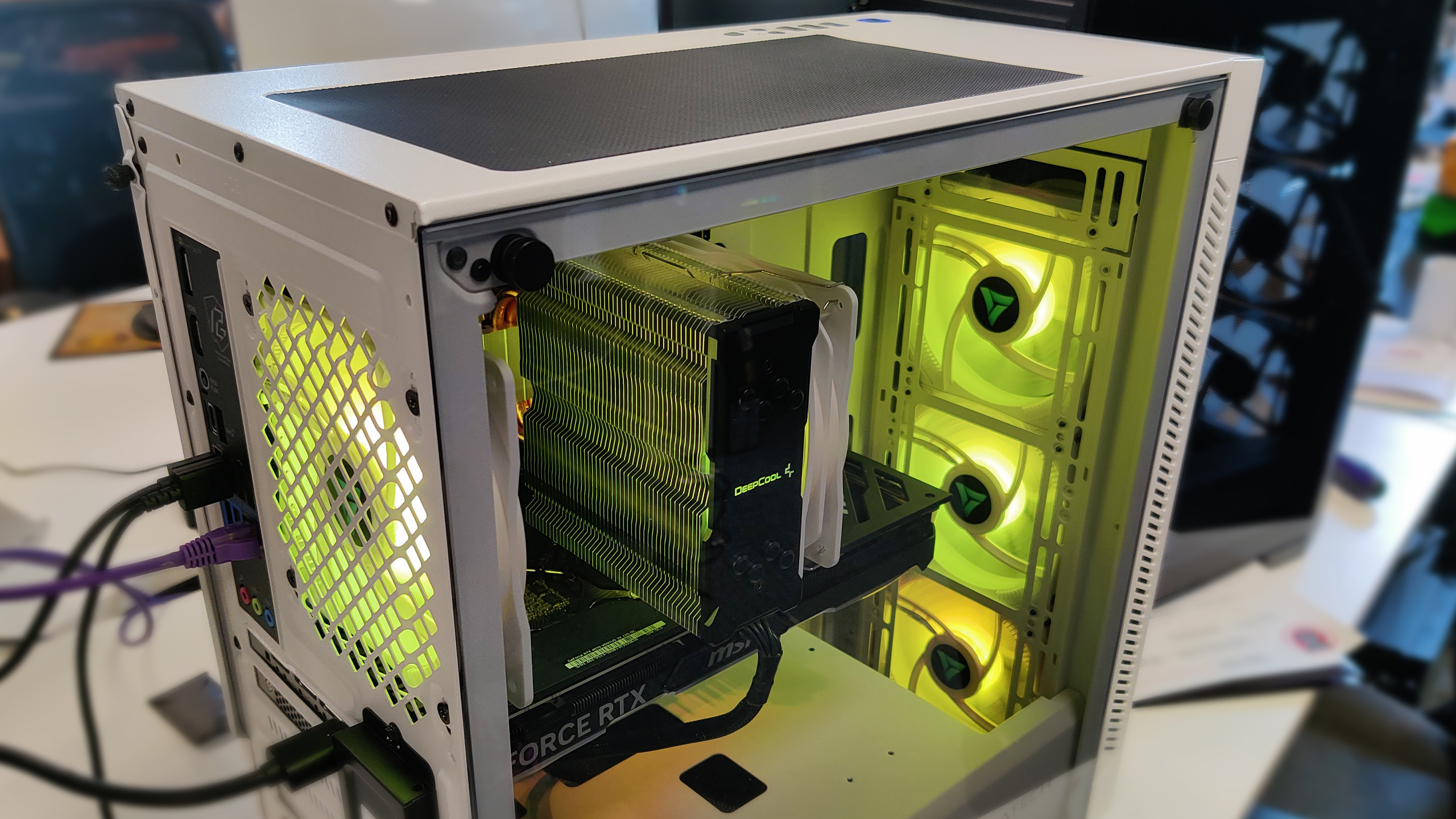
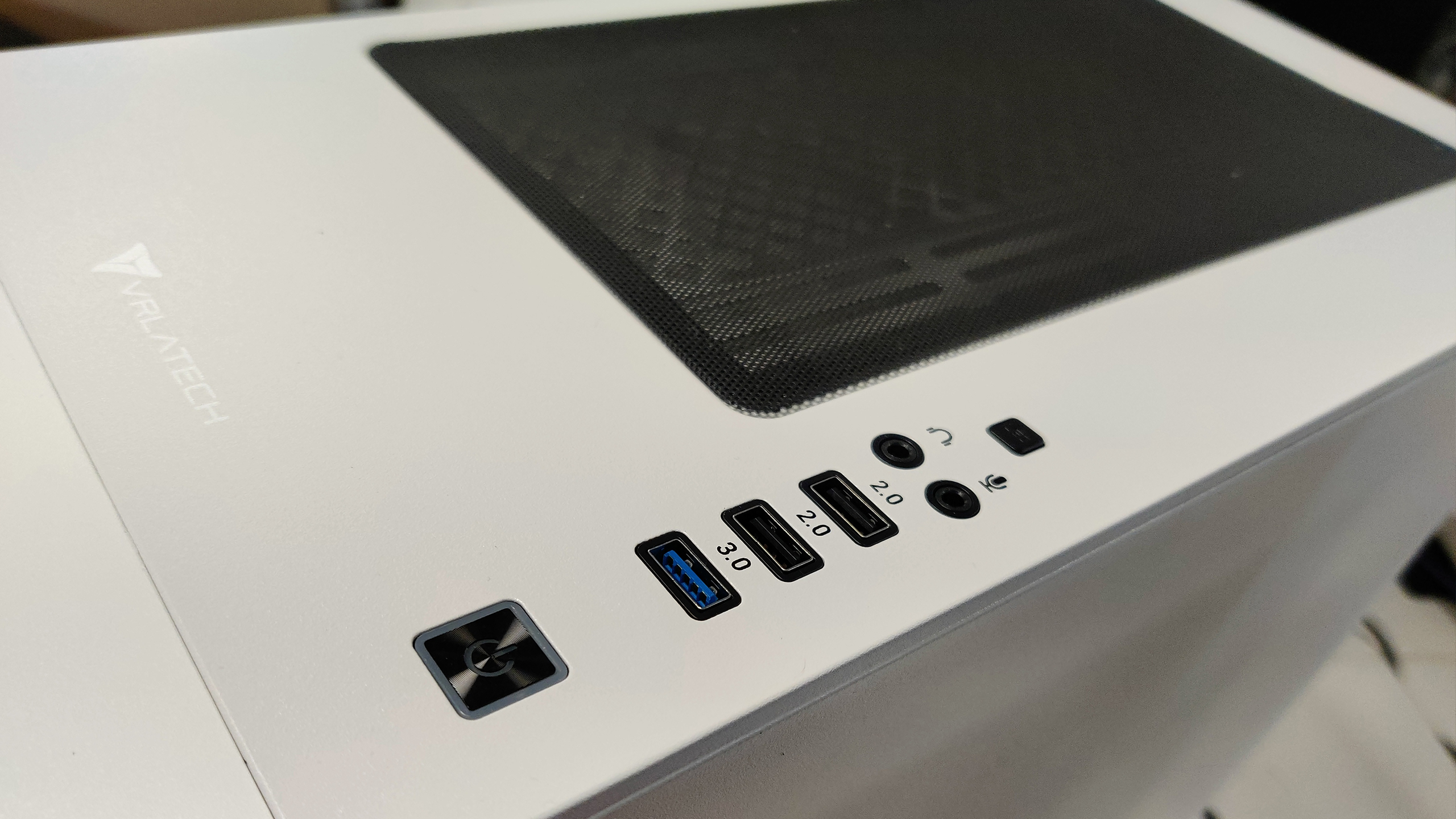
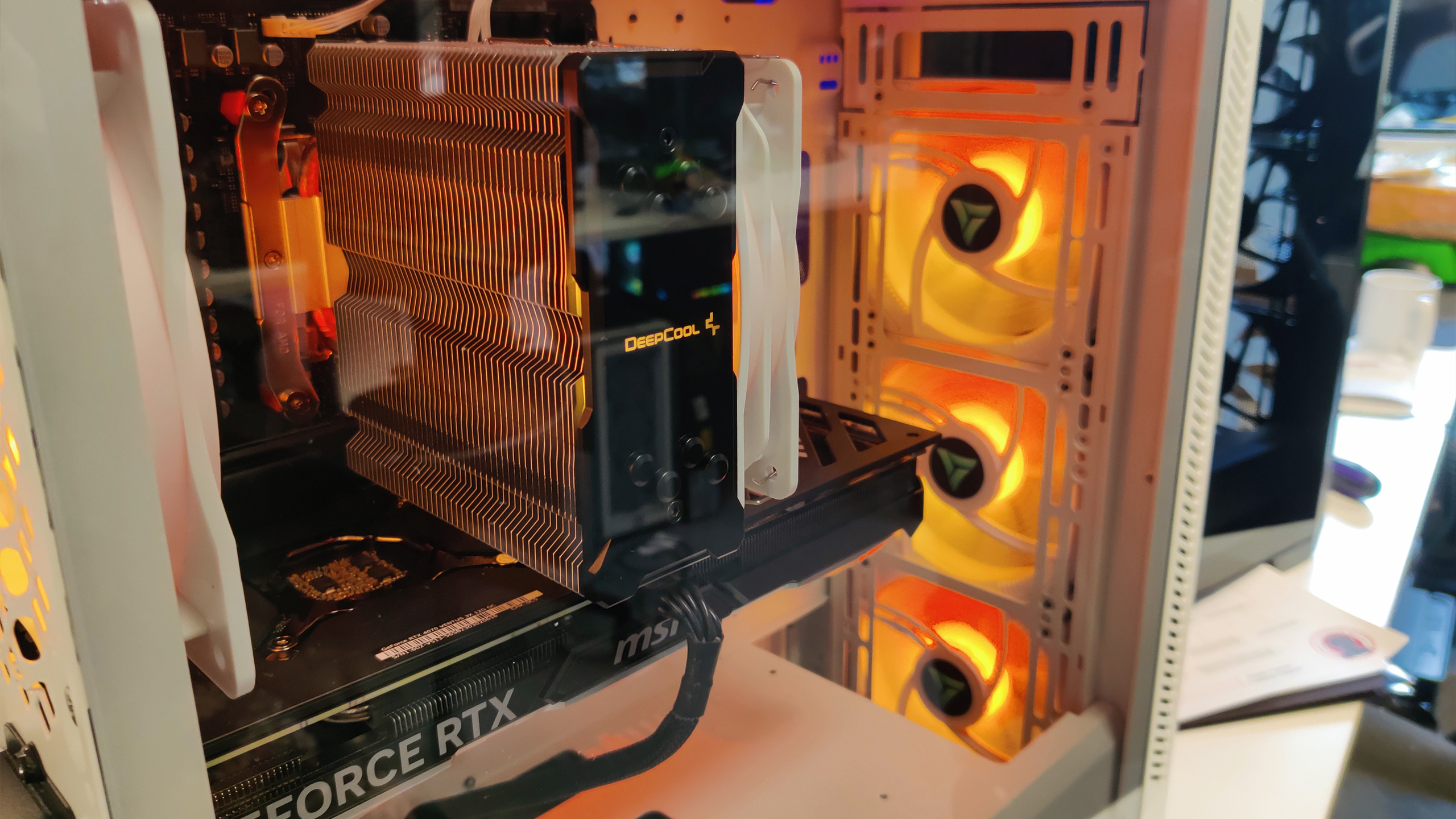
Backing it up, the RTX 4070 does some serious gaming numbers. Not only does it manage 49 fps averages in the notorious 4K Ultra Metro Exodus Enhanced benchmark, it could even make the most of a 120Hz gaming monitor in the same game, with 119 fps averages at 1080p. You can really see where the RTX 4070 and Ryzen 5 7600 pairing works well when it comes to that Far Cry 6 4K Ultra benchmark too—81 fps averages and a 74 fps minimum? It's just waving off all those particle effects.
CPU performance
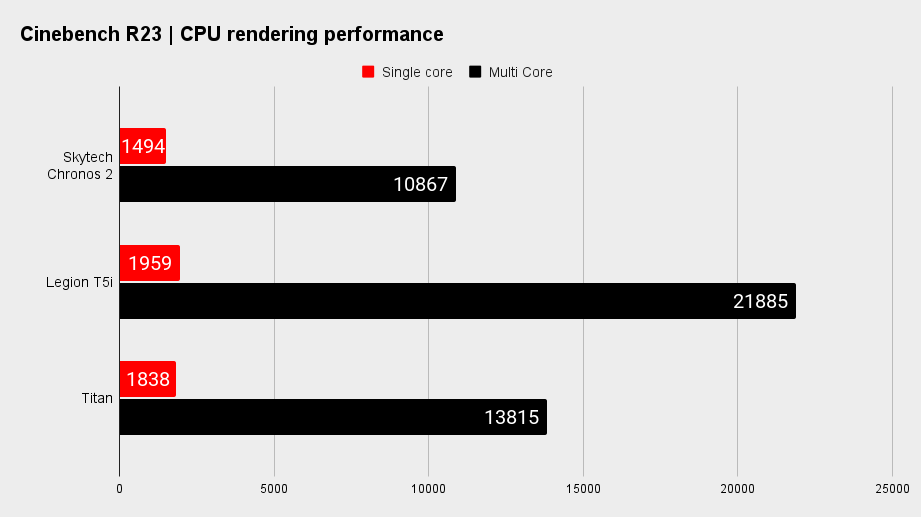
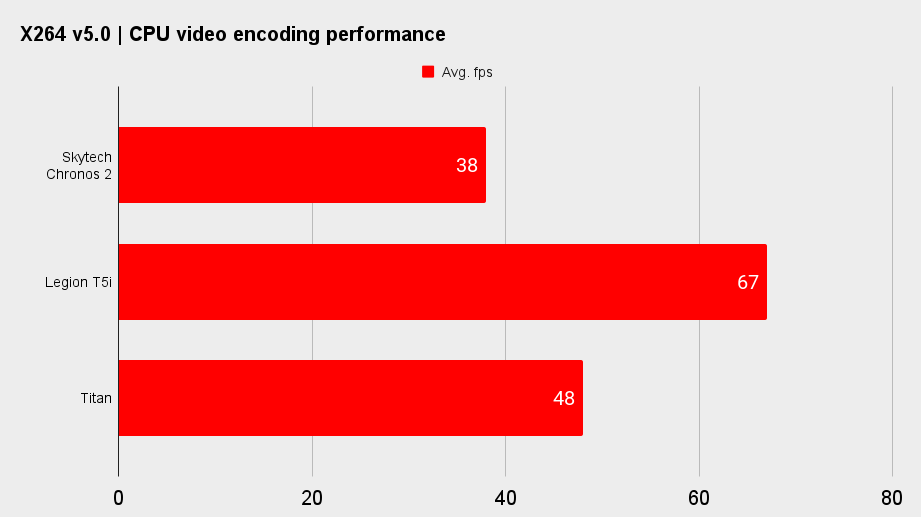
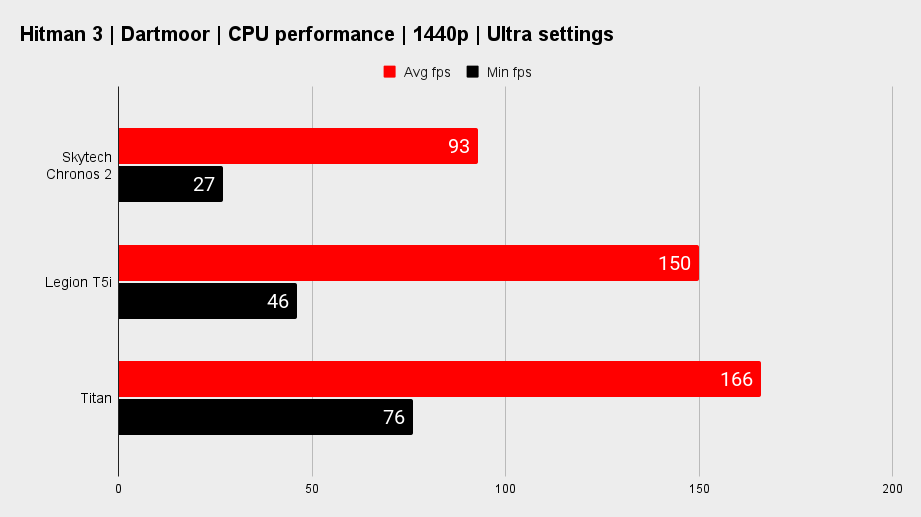
What I really appreciate is that the rest of the spec actually manages to do the crowning CPU/GPU combo justice. Mostly.
Of the three comparative machines, the Titan's RAM is the most impressive on paper. It's 16GB of dual-channel DDR5 memory, running at 5200 MHz, and it has some intense memory copy and throughput going for it. Though it does sometimes fall behind the Legion 5i's DDR5-4400 when it comes to real-world performance.
VRLA Tech is onto a stellar core component combo here.
It's still much appreciated for the price, though as with any machine only packing 16GB of RAM, it does struggle with all my Cities: Skylines mods. For most games, though, that DDR5 memory is going to have no trouble whatsoever.
While the Kingston NV2 SSD VRLA Tech has jammed in there is a PCIe Gen 4 offering, it only touts 3500MB/s read and 2100MB/s write speeds. That's a bit on the slow side for what it is, but that doesn't stop the overall build from being worth the money. You're still looking at tidy 9-second load times in our FFXIV benchmark. You could do a lot worse, in other words.
Memory and storage performance
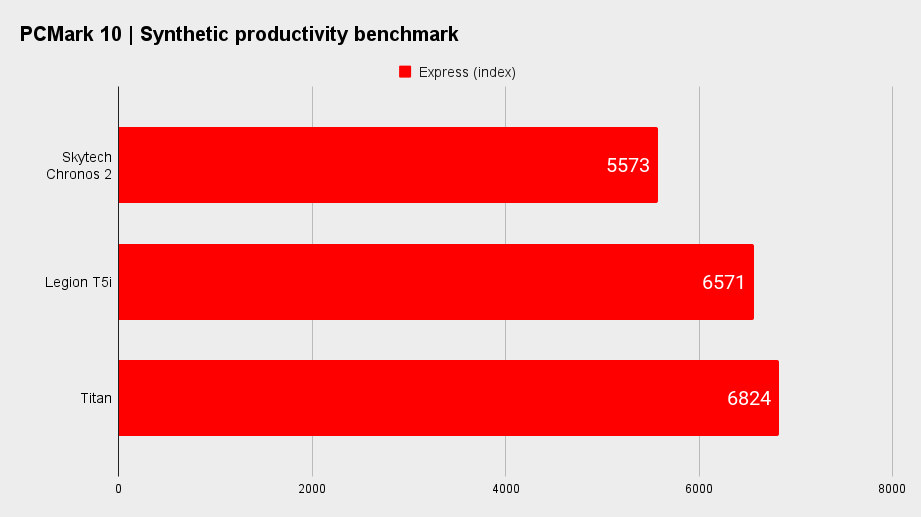
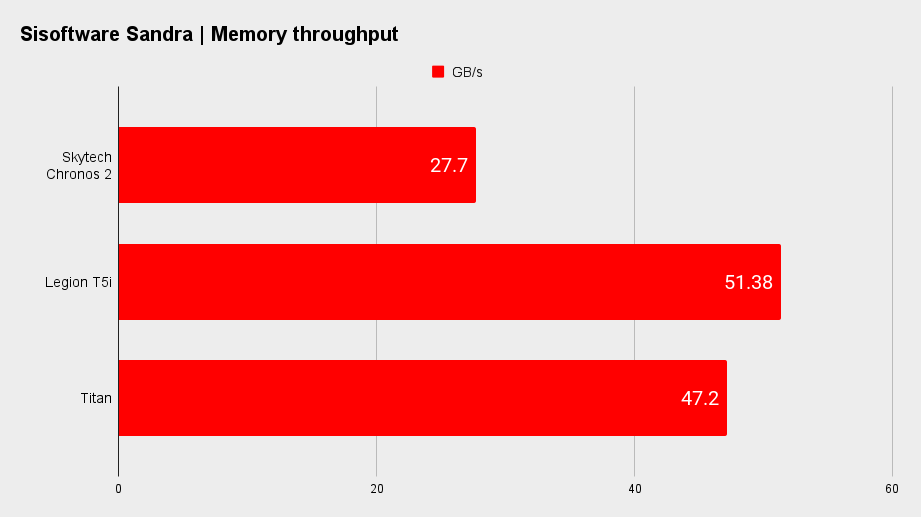
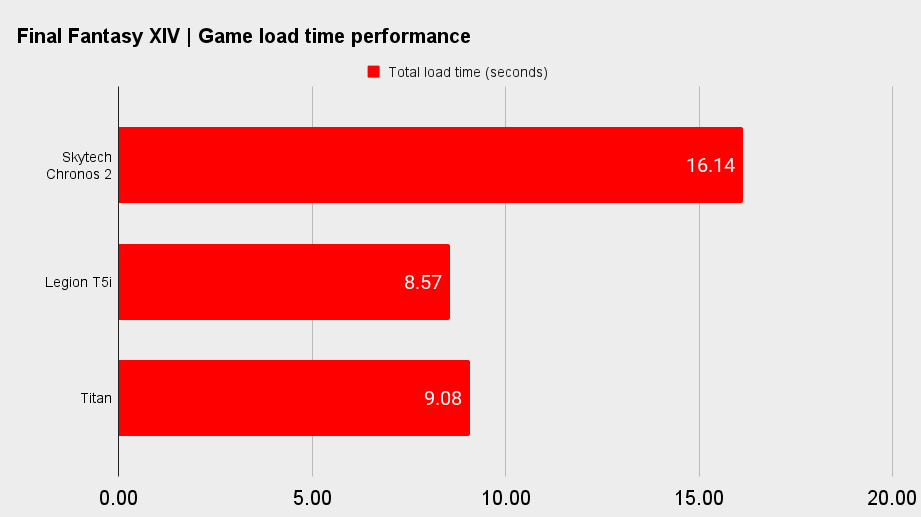
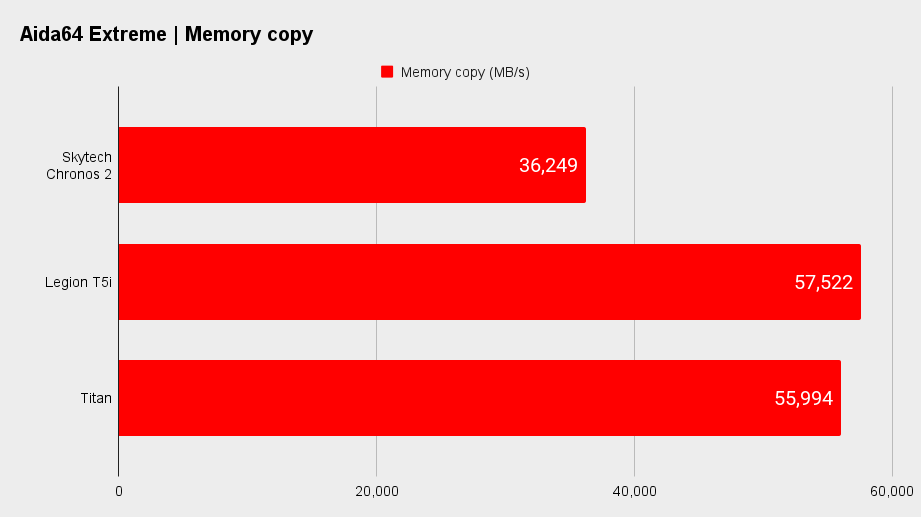
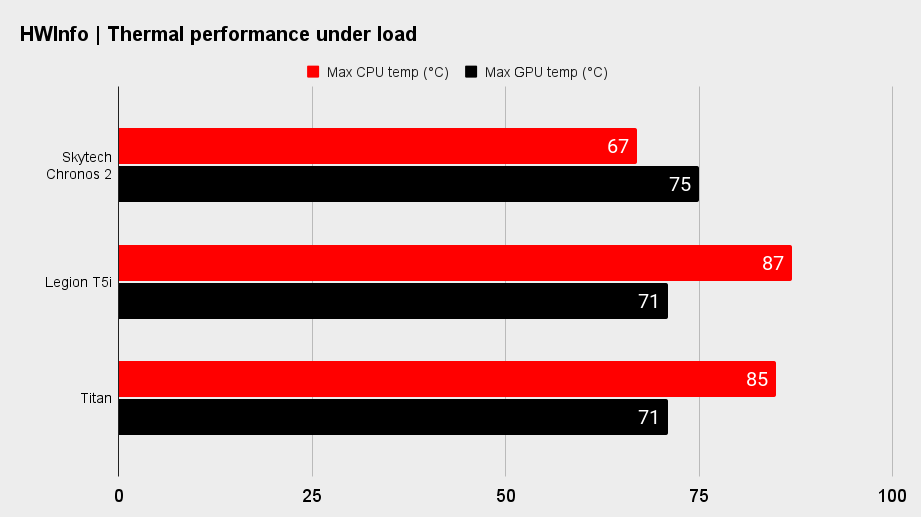
VRLA Tech also didn't cop out with a tiny capacity, or an HDD pairing for the storage either—much appreciated when modern games like Starfield are both massive and moving away from hard drive support. Sure, storage is one of the easiest and cheapest things to upgrade down the line, but you shouldn't be thinking about that having just spent almost two grand. The speeds here are my only real qualm with the Titan build, however.
Against the rest of the market, a machine like this really stands out for me. Not only is it well presented with a staunch supporting spec and stellar gaming performance to boot, it comes in at just the right pricing for what you get. Sure there are RTX 4070 Ti-powered gaming PCs for around the same price, but you'll end up sacrificing for last-gen processors and memory to get there and—I cannot stress this enough—there's more to gaming than the GPU.
You'll be hard pressed to find a machine with such an outstanding accompanying spec, as well as a fantastic current-gen processor backing it up for less than $2,000 today.
VRLA Tech has gone all out on a mid-tier, current gen-beastie. The Titan hits the spot for gaming and rendering for a really reasonable price, and there's hardly a caveat in sight.

Screw sports, Katie would rather watch Intel, AMD and Nvidia go at it. Having been obsessed with computers and graphics for three long decades, she took Game Art and Design up to Masters level at uni, and has been rambling about games, tech and science—rather sarcastically—for four years since. She can be found admiring technological advancements, scrambling for scintillating Raspberry Pi projects, preaching cybersecurity awareness, sighing over semiconductors, and gawping at the latest GPU upgrades. Right now she's waiting patiently for her chance to upload her consciousness into the cloud.
